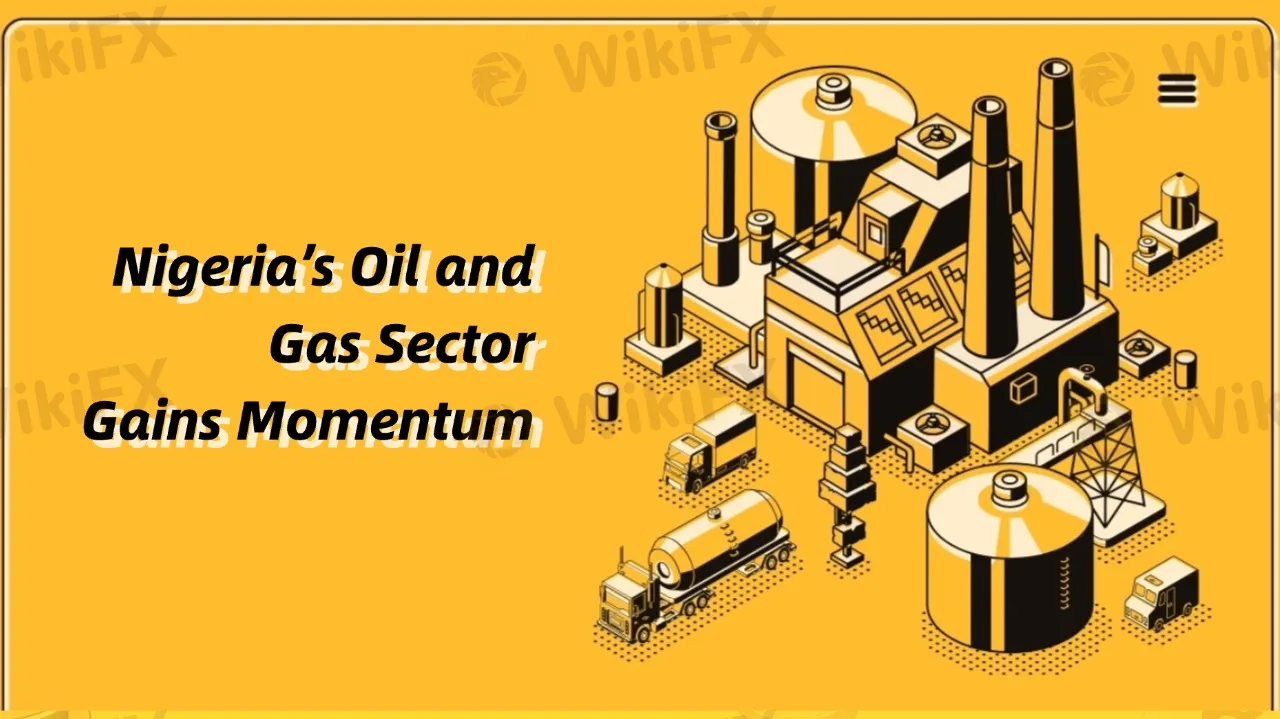简体中文
繁體中文
English
Pусский
日本語
ภาษาไทย
Tiếng Việt
Bahasa Indonesia
Español
हिन्दी
Filippiiniläinen
Français
Deutsch
Português
Türkçe
한국어
العربية
Nigeria’s Oil and Gas Sector Gains Momentum
Abstract:Nigeria’s oil and gas industry is experiencing a surge in investment, fueled by policy reforms and international collaboration, paving the way for continued energy expansion.

Nigerias oil and gas sector will continue to be a key pillar of the economy. Thanks to regulatory reforms and investment incentives, the country has become a prime destination for global energy investors.
In 2024, Nigeria attracted between $16 billion and $17 billion in foreign investment, a trend expected to persist. With rising global energy demand, Nigeria is expanding its production capacity to meet market needs while strengthening its position in the international energy landscape.
Optimized Investment Climate Brings New Opportunities
The Nigerian government has introduced the Petroleum Industry Act and a series of executive orders to lower industry entry barriers and offer flexible investment models, such as joint ventures and production-sharing contracts.
With 37 billion barrels of crude oil reserves and approximately 207 trillion cubic feet of natural gas, Nigeria is enhancing its refining capacity to reduce import dependence while upgrading its gas infrastructure.
Collaborating with energy giants like Shell, Eni, and Total, Nigeria is expanding its domestic and international market reach. Additionally, the advancement of the LNG Train 7 project will further solidify Nigerias competitive edge in the global natural gas market.
Despite its promising future, Nigeria faces several challenges, including infrastructure gaps, global energy market volatility, and regional security concerns.
Moreover, as the world transitions toward low-carbon energy, Nigeria must balance its oil and gas growth with a gradual shift toward renewable energy. Moving forward, the government needs to continuously improve the investment environment, strengthen international partnerships, and diversify its energy sector to ensure long-term stability and growth.

Disclaimer:
The views in this article only represent the author's personal views, and do not constitute investment advice on this platform. This platform does not guarantee the accuracy, completeness and timeliness of the information in the article, and will not be liable for any loss caused by the use of or reliance on the information in the article.
Read more

Never Heard of Dynasty Trade? Here's Why You Should Be Worried
Have you heard this name before? No , it’s time you do because staying unaware could cost you. This platform is currently active in the forex trading and has been linked to several suspicious activities. Even if you’ve never dealt with it directly, there’s a chance it could reach out to you through ads, calls, messages, or social media. That’s why it’s important to know the red flags in advance.

WEEKLY SCAM BROKERS LIST IS OUT! Check it now
If you missed this week's fraud brokers list and are finding it difficult to track them one by one — don’t worry! We’ve brought together all the scam brokers you need to avoid, all in one place. Check this list now to stay alert and protect yourself from fraudulent brokers.

Catch the Latest Update on BotBro & Lavish Chaudhary
BotBro, an AI-based trading platform, became popular in India in 2024—but for negative reasons. Its founder, Lavish Chaudhary, who gained a huge following by promoting it heavily on social media. Since then, he has become well-known, but for many controversies. Let’s know the latest update about Botbro & Lavish Chaudhary.

Trading Other People’s Money | What Prop Firms Don’t Tell You
Proprietary (prop) trading firms have become increasingly popular. They give traders the chance to trade with larger amounts of money without risking their own savings. For many, this sounds like the perfect opportunity to grow faster and earn more. But while the benefits are appealing, there are also risks and hidden rules that traders must understand before joining a prop firm.
WikiFX Broker
Latest News
RM750 Million Lost to Investment Scams in Just Six Months
5 things to know before the Thursday open: Meme stock revival, Trump's Fed visit, Uber's gender feature
Why Octa Is the Ideal Broker for MetaTrader 4 & 5 Users
CNBC's Inside India newsletter: Leaving, but not letting go — India's wealthy move abroad, but stay invested
Moncler raises prices on tariffs, may postpone store openings if downturn worsens
Titan FX Adds WhatsApp and Telegram for Enhanced Support
Nestle flags further potential price hikes as tariffs, commodities weigh on margins
Stop Level Forex: How Does it Help Traders Prevail When Losses Mount?
eToro Launches Spot-Quoted Futures Trading in Spain
Titan FX Introduces Redesigned Client Cabinet for Enhanced Usability
Currency Calculator


